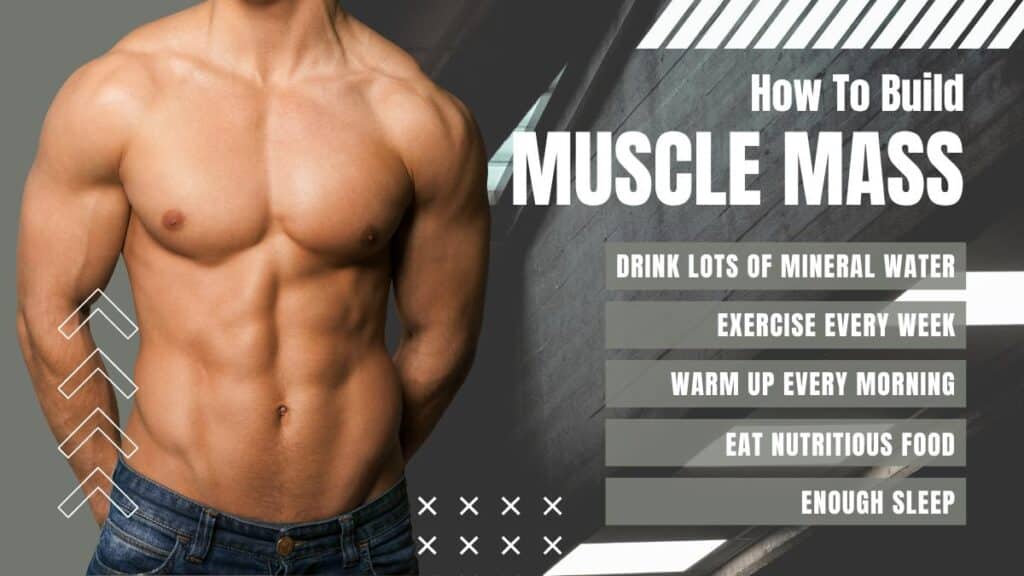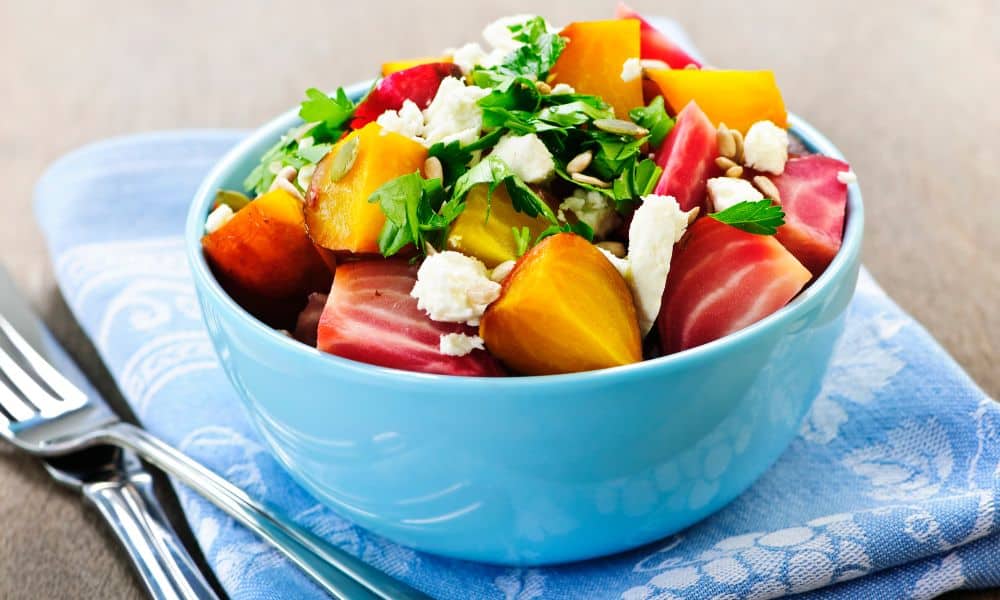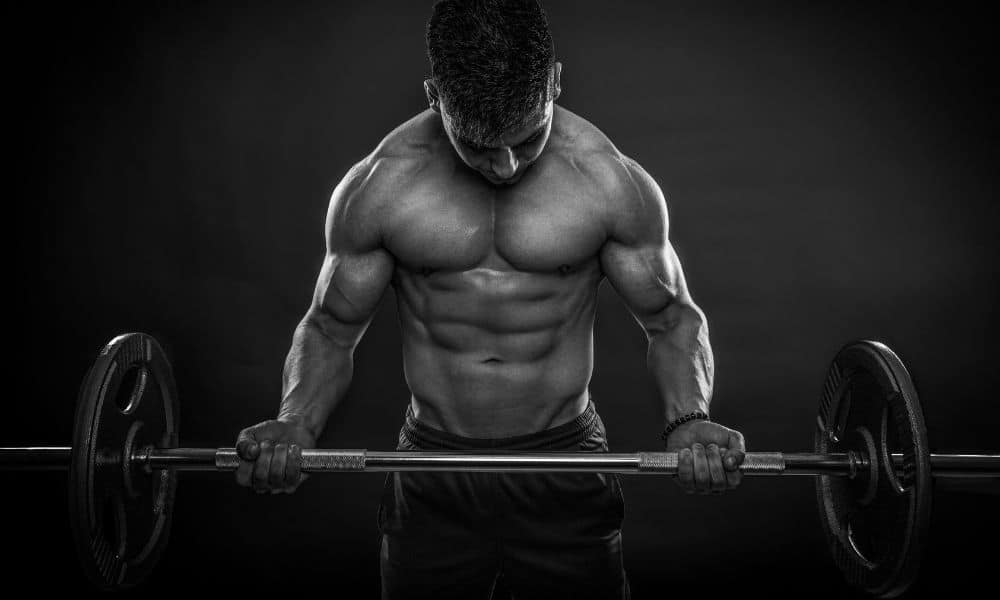A well balanced meal plan can help you burn fat, build muscle and feel great! Embarking on a muscle-building journey requires not just dedication in the gym but also a meticulous approach to nutrition. An effective meal plan for muscle building is a critical component of any fitness regimen, designed to fuel workouts, aid in recovery, and promote muscle growth.
This comprehensive guide delves into the quintessential elements of such a meal plan, encompassing a well-rounded breakfast to kick-start your metabolism, a nutrient-packed pre-workout meal to energize your training sessions, a post-workout meal crafted for optimal recovery, and balanced lunch and dinner options to ensure a steady supply of essential nutrients throughout the day. By understanding and integrating these key meals into your daily routine, you’re setting the stage for substantial muscle gains and enhanced overall health.
Breakfast:
Breakfast is the most important meal of the day. It kick-starts your metabolism and helps you lose weight, build muscle and stay healthy. A good breakfast will keep you full for longer than other meals, so that you don’t feel hungry during the morning hours when it’s easy to reach for unhealthy snacks like chocolate bars or sugary cereal.
A proper breakfast should be high in protein (25-30g) and low in carbs (less than 50g). This will ensure that you’re getting all of those essential vitamins and minerals while keeping blood sugar levels stable throughout the day–you won’t crash after eating something high in carbs! Remember, maintaining your physique is equally important as prp treatment for face or undergoing chemical peel.
Pre-workout meal:
The pre-workout meal is the most important meal of the day. It’s generally recommended that you eat within two hours before exercise, but it can also be beneficial to eat earlier (about one hour) or later (around three hours). The key is to make sure your body has enough fuel for your workout without feeling too full or sluggish during it.
Pre-workout nutrition should be high in protein, moderate in carbs and low in fat. A good ratio is about 20% of calories from protein with 70% from carbohydrates; this will help keep blood sugar levels stable so they don’t drop too low during exercise–which could make you feel faint–or spike too high after eating–which could lead to nausea or vomiting during exercise!
Post-workout meal:
- Eat within 30 minutes of your workout.
- Consume a high-calorie meal containing protein and carbs.
- The meal should be high in calories, but low in fat and fiber to help your body recover from the workout more quickly.
Remember that doing exercise is very important, it makes your body good, keeps you healthy, it aids in weight loss and improves insulin resistance. So it’s best that you do proper workout and then eat in order to recover any loss!
Lunch:
Lunch should be the largest meal of your day, and it’s important to eat more calories at lunch than you do at other meals. Because you’re not working out in the morning, it’s less likely that you’ll burn through those calories during exercise. That means they’ll have time to turn into fat if they aren’t used up throughout the rest of your day–and that’s not what we want!
To ensure that your body has enough fuel to build muscle and recover from workouts as quickly as possible, include healthy fats (e.g., avocado), protein (e.g., chicken breast) and carbs (e.g., brown rice).
Pre-workout snack:
A pre-workout snack should be high in carbs, low in fat and protein, and relatively low in fiber. The reason for this is because you want your body to be able to burn through the carbs quickly so that they can get into your bloodstream as fast as possible. This allows you to use them as fuel during your workout.
The only exception here would be if you have an insulin sensitivity problem (for example, if you suffer from Type 2 Diabetes). If that’s the case, then don’t eat any starchy carbs before working out; instead choose slow burning energy sources such as whole grains or fruit instead
Post-workout snack:
After your workout, you need to eat within 30 minutes. You’ve just spent the last hour or so breaking down your muscle fibers and rebuilding them stronger than before. Your body is going to want to refuel with nutrients that will help it recover from this intense exercise session.
If you’re looking for something easy to digest and provide some quick energy, consider a protein shake made with milk or water (depending on your preference), yogurt and fruit like bananas or berries as well as nut butters such as peanut butter or almond butter, in a protein shaker bottle. Bananas are great because they’re high in potassium which helps prevent cramping while also providing fast-burning carbohydrates that will give you energy right away! The peanut butter adds protein which helps build new muscles when eaten post workout!
Dinner:
For dinner, you want to make sure that you eat the largest meal of the day and aim to do so before 8 p.m. This will give your body enough time to digest your food before bedtime, which helps prevent indigestion and heartburn.
If possible, try to balance out your dinner with protein (such as salmon), carbohydrates (like brown rice) and healthy fats (like olive oil). Avoid eating late at night as it will cause weight gain!
Make sure to eat enough protein:
When it comes to building muscle, protein is the name of the game. Protein helps your body produce new tissue and repair old muscle fibers after you’ve been training hard at the gym (and even when you’re not).
If you want to build more muscle mass, then it’s important that you eat enough protein each day–but how much? That depends on several factors: your weight, height and activity level. The recommended daily allowance for most adults is between 0.8 grams per kilogram (g/kg) of body weight per day; for example, if someone weighs 70 kg (154 pounds), then they should aim for around 54 g of protein per day (70 x 0.8).
Eat more frequently:
Now that you know what to eat, it’s time to figure out the best way to eat it. The most effective meal plan for muscle building is one that keeps your metabolism high and helps keep hunger at bay.
- Eat every 2-3 hours
Eating small amounts of food throughout the day will help keep your metabolism revving at a steady pace. This means that instead of eating three large meals, try eating six small ones instead (about 500 calories per meal). This will prevent any dips in energy levels between meals and ensure that you don’t overeat at any given sitting.
- Don’t eat too much at once
It’s important not to overdo it with food when trying to build muscle–eating too much will lead directly back into fat storage mode! Try eating just enough so that you feel satisfied but not stuffed; this way, you’ll avoid packing on extra pounds while still getting all the nutrients required for building lean mass.
Limit total fat intake and try to avoid saturated fats:
Limit total fat intake and try to avoid saturated fats. Saturated fats are bad for you and should be limited as much as possible. They’re found in animal products, such as meat and dairy, as well as processed foods like cookies, cakes and cupcakes. Saturated fats are solid at room temperature (think butter or lard), which means they can be easily stored in your body’s cells–and they’re high in calories!
That’s why it’s so important to limit your intake of these foods if you want to build muscle quickly without gaining weight along with it.
Drink lots of water:
Drinking water is the most important part of your diet. It’s essential for survival, and it helps your body function properly. You can’t build muscle if you don’t get enough water!
You should drink about a gallon (4 liters) of fluids per day, but this will vary depending on how much you exercise and sweat each day. If you’re eating more than 3,500 calories per day and working out intensely then aim for 2 liters; otherwise aim for 1 liter per 1,000 calories consumed (which would be about 2 gallons).
If you feel thirsty or notice signs of dehydration such as dry mouth or dark urine, then drink some water right away! However if not thirsty at all yet still urinate frequently then try drinking less since over hydration can cause kidney problems later down the road.
Eat foods high in fiber:
You should eat foods high in fiber. Fiber is a type of carbohydrate that your body doesn’t digest, but it helps you feel full longer and can help lower cholesterol and blood sugar levels.
Eat foods that contain healthy fats:
A healthy diet is one that contains the right amount of calories, fat and nutrients. It’s important to include foods that contain healthy fats in your meal plan because they’re an essential part of a well-balanced diet.
Healthy fats are known as “good” fats because they can help you feel full after eating them. They also supply energy to your body and brain, which helps keep you going throughout the day. Healthy fats are used by the body as building blocks for cell membranes, hormones, vitamin D and other substances needed for good health.
In addition to being an excellent source of energy, omega-3 fatty acids have been shown to improve cognitive function in older adults with mild cognitive impairment. In fact, some studies show that eating fish once per week may even reduce risk of Alzheimer’s disease by 42%!
Load up on vegetables and fruit:
For a muscle-building meal plan, it’s important to load up on vegetables and fruit. Vegetables and fruit are great sources of vitamins, minerals and fiber. They’re also low in calories so you can eat more of them without gaining weight.
Vegetables are low in fat and very filling! You should aim for at least 2 cups each day (or 4 cups if you’re active). If you don’t like vegetables or just have trouble getting enough each day, then try adding some extra servings into your diet during the week by having some salad with lunch or dinner or adding more veggies into soups/stews/pasta sauces etc…
Conclusion
A good meal plan for muscle building will include plenty of protein, carbs and healthy fats. It’s also important to eat enough calories and get enough sleep each night so that your body has the resources it needs to repair itself after working out. If you’re serious about building lean muscle mass, then this is a great place to start!




